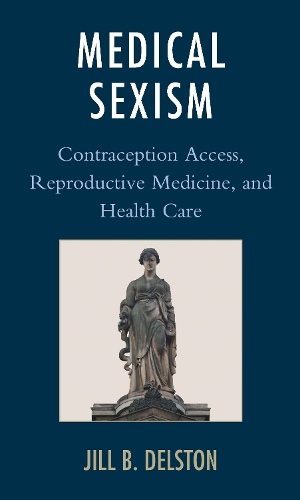
Medical Sexism: Contraception Access, Reproductive Medicine, and Health Care
(Hardback)
Available Formats
Publishing Details
Medical Sexism: Contraception Access, Reproductive Medicine, and Health Care
By (Author) Jill B. Delston
Bloomsbury Publishing PLC
Lexington Books
17th October 2019
United States
Classifications
Professional and Scholarly
Non Fiction
Law and society, gender issues
Gender studies, gender groups
362.1082
Physical Properties
Hardback
360
Width 152mm, Height 229mm, Spine 32mm
712g
Description
Doctors routinely deny patients access to hormonal birth control prescription refills, and this issue has broad interest for feminism, biomedical ethics, and applied ethics generally. Medical Sexism argues that such practices violate a variety of legal and moral standards, including informed consent, medical malpractice, and human rights. Why are such violations so common, systemic, and persistent Jill B. Delston examines a range of possible explanations and makes the case for medical sexism as a major underlying cause. Building on this conceptual foundation, the author then considers other common abuses in the medical field, such as abortion access policy, labor and delivery treatment, misdiagnosing strokes, and underestimating pain. Many argue that we can override patient autonomy in reproductive health cases due to the fetus. However, the case of contraception includes the same attitudes, behaviors, and practices even in the absence of a fetus. Delston argues that sexism is a better explanation for the widespread abuse of patient autonomy in reproductive health and health care generally. Identifying, addressing, and rooting out medical sexism is necessary if we are to successfully protect medical and moral values.
Reviews
Medical Sexism: Contraception Access, Reproductive Medicine, and Health Care argues that medical sexism is rampant, not only in reproductive health care, but health care more generally. Beginning with the case of mandatory Pap tests and pelvic exams for birth control prescriptions, Jill Delston documents the ways that medical professionals mistreat and infantilize women and violate their autonomy due to sexism. Her meticulously researched, carefully argued, and well-written book is an outstanding original contribution to medical ethics and to feminist thought. In addition to students and scholars in those fields, Professor Delstons book should be required reading for anyone entering the field of health care as well as medical policy makers. -- Ann Cudd, University of Pittsburgh
Author Bio
Jill B. Delston is associate teaching professor of philosophy at the University of Missouri-St. Louis.
